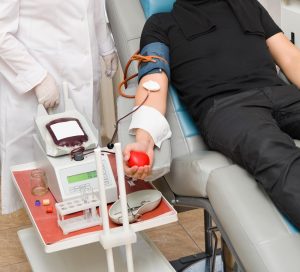 If you’re suffering from the debilitating effects of low testosterone (also called “Low-T”), your most urgent and probably the first question is going to be: Can Low-T be cured?
If you’re suffering from the debilitating effects of low testosterone (also called “Low-T”), your most urgent and probably the first question is going to be: Can Low-T be cured?
The answer is complex, so pay attention. In one sense, the answer is no, because many conditions (such as genetics) that cause low testosterone persist for a lifetime or (like environmental factors that can’t be changed easily) persist for a very long time.
But also, in a sense, you could say yes, there is, because modern medicine offers testosterone replacement therapy (also called TRT) which can bring Low-T sufferers back to their full male potential quickly and easily.
For many, the treatment is totally successful – the only downside is that you have to engage in the therapy indefinitely to get the results. For many men, the benefits are so great that this is an easy trade-off – a no-brainer, as the expression goes.
 It’s essential to Get Hormone Testing Done First Before Starting Therapy.
It’s essential to Get Hormone Testing Done First Before Starting Therapy.
It’s important to do it right, of course: Get tested by one of our board-certified physicians and know for sure that low testosterone is the cause of your symptoms before jumping in and altering your endocrine system.
Some fly-by-night pitchmen try to sell you injections of questionable content, safety, and legality without testing and without proper diagnosis of your whole health profile by a qualified doctor. That’s a formula for ruining your health while emptying your pocketbook – so beware!
So, if you have the symptoms usually associated with Low-T – get tested as soon as possible. These symptoms could include – and they’re particularly suggestive of low testosterone when you are suffering from more than one of them: 1) increased body fat; 2) a drop in muscle mass and/or firmness; 3) a weak sex drive; 4) poor sexual performance; and 5) persistent fatigue.
There could be other causes for these symptoms, too, but the only way to know if you’re among the many thousands of men who can benefit from testosterone replacement therapy is to start the testing process.
 Testosterone is Crucial for Masculinity
Testosterone is Crucial for Masculinity
The hormone testosterone is a vital part of your body and an essential ingredient in your masculinity – your manliness.
Almost all distinctively male characteristics depend to a large extent on your testosterone level: the pitch of your voice; your characteristically male musculature; your body and facial hair – and your red blood cell count; your confidence, mood, and positive attitude; your bone and muscle strength; and even your reasoning ability are all positively affected by a healthy testosterone level.
Typically, your testosterone levels peak in your late 20s and decline very slowly afterward. But in some men, the decline is rapid and disastrous to quality of life. For some men, genetics or disease play a factor in such a decline – and in others, obesity, heavy alcohol use, injuries, cancer therapies, steroid use, and stress can cause your T levels to drop below normal.
Our doctors are qualified to determine if your testosterone levels are ample or adequate for your age, and, if you are one of those men whose levels have fallen below the normal curve, we can help restore them safely and easily.
Contact Us For A Fast And Professional Response

- Sermorelin — HGH Injections Versus Sermorelin and Testosterone Therapy Programs [Last Updated On: February 20th, 2025] [Originally Added On: September 20th, 2020]
- The scientific research benefits of testosterone treatment (TRT) [Last Updated On: September 5th, 2025] [Originally Added On: September 26th, 2020]
- Low-T Associated with Increased Risk of Atherosclerosis in Men with Type-2 Diabetes [Last Updated On: April 17th, 2025] [Originally Added On: October 20th, 2020]
- Health Changes Associated with Low Testosterone and Andropause [Last Updated On: June 15th, 2025] [Originally Added On: November 16th, 2020]
- Five Sports for Living Longer – Life Extension Through Sport [Last Updated On: March 16th, 2025] [Originally Added On: December 2nd, 2020]
- Covid-19 Mortality Risk Correlates With Low-T [Last Updated On: April 16th, 2025] [Originally Added On: December 17th, 2020]
- New Research Explores How Testosterone Influences Your Popular or Unpopular Opinions [Last Updated On: October 31st, 2025] [Originally Added On: February 22nd, 2021]
- Primary Versus Secondary Hypogonadism [Last Updated On: October 9th, 2025] [Originally Added On: March 15th, 2021]
- Testosterone Cypionate Information [Last Updated On: August 24th, 2025] [Originally Added On: May 5th, 2021]
- Testosterone Replacement Therapy May Help Cure Non-Alcoholic Fatty Liver Disease [Last Updated On: October 25th, 2025] [Originally Added On: June 5th, 2021]
- Hydraulic Fracturing: Another Environmental Pollutant That Affects Your Testosterone Levels [Last Updated On: October 13th, 2025] [Originally Added On: July 11th, 2021]
- Low Testosterone (Low T) [Last Updated On: April 25th, 2025] [Originally Added On: September 7th, 2021]
- Low Testosterone – A Possible Link to Rheumatoid Arthritis Risk? [Last Updated On: January 21st, 2025] [Originally Added On: February 12th, 2022]
- The (Surprising) Necessity for Estrogen in Men [Last Updated On: January 22nd, 2025] [Originally Added On: March 1st, 2022]
- Anti-Aging Benefits from Hormone Balance [Last Updated On: January 18th, 2025] [Originally Added On: March 22nd, 2022]
- Male Testosterone Levels Have Dropped by Half - Fact or Myth? [Last Updated On: August 11th, 2025] [Originally Added On: May 14th, 2022]
- Tlando is on the Market – Oral Testosterone Replacement Therapy [Last Updated On: January 20th, 2025] [Originally Added On: June 9th, 2022]
- Tlando Low-T Treatment - A Safe and Effective Pill for Testosterone Deficiency [Last Updated On: August 17th, 2025] [Originally Added On: June 25th, 2022]
- Fatigue and Lack of Sexual Interest: Could it be Male Menopause? [Last Updated On: January 25th, 2025] [Originally Added On: June 27th, 2022]
- The Power of Testosterone—Improving Memory in Diabetics [Last Updated On: August 16th, 2025] [Originally Added On: July 12th, 2022]
- Kyzatrex Achieves FDA Approval—A Brand New Oral Testosterone Treatment [Last Updated On: August 18th, 2025] [Originally Added On: August 13th, 2022]
- How Testosterone and Social Context Influence Behavior [Last Updated On: August 30th, 2025] [Originally Added On: December 11th, 2022]
















